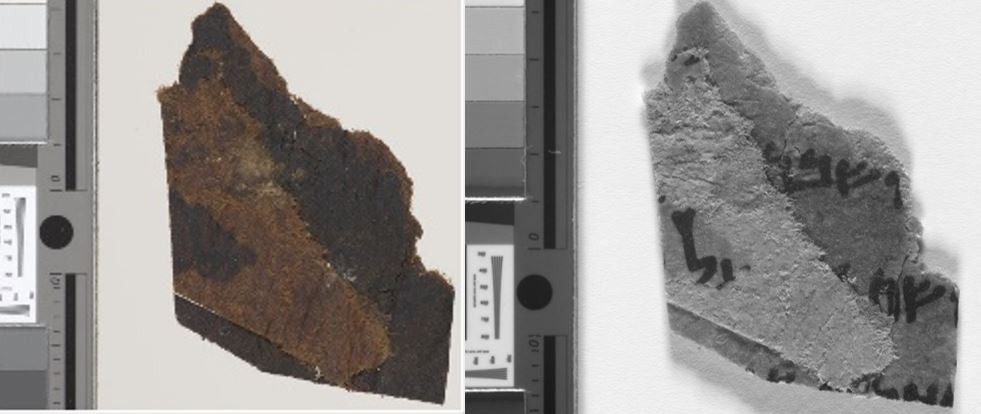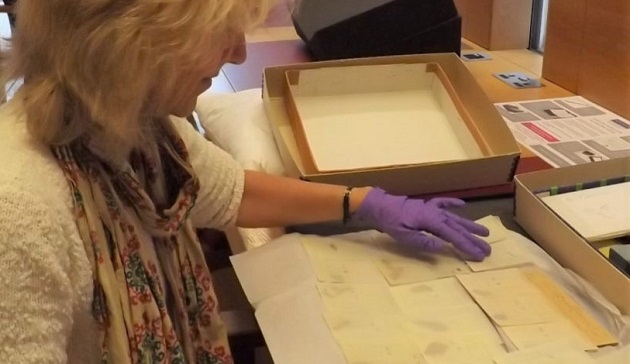The University of Manchester has found that a text in Aramaic mentions the “Sabbath” and could fit with Ezekiel 46:1-3.
 The Hebrew word
The Hebrew word
Four fragments of Dead Sea Scrolls that had gone unnoticed in English universities, have now gained much relevance after new technologies helped find readable Hebrew-Aramaic text.
“The most substantial fragment has the remains of four lines of text with 15-16 letters, most of which are only partially preserved, but the word Shabbat can be clearly read”, the University of Manchester said in a statement. “This text may be related to the biblical book of Ezekiel (46:1-3). One piece with text is the edge of a parchment scroll section, with sewn thread, and the first letters of two lines of text may be seen to the left of this binding.
In the 1950s, these fragments of the Dead Sea scrolls had been gifted by the Jordanian government to Leeds university expert Ronald Reed. Reed studied them and published his findings, but he was unable to find any text.
The fragments were later donated to the University of Manchester, and Professor Joan Taylor, an expert in Christian origins and Second Temple Judaism of King's College London, started examining the collection for a new study alongside two teammates only recently.
“Professor Taylor thought it possible that one of [these fragments] did actually contain a letter, and therefore decided to photograph all of the existing fragments over 1 cm that appear blank to the naked eye, using multispectral imaging”, the university said in a statement.
 Joan Taylor examining the Dead Sea Scrolls fragments in the John Rylands Library Reading Room. / Photo: Network for the Study of Dispersed Qumran Cave Artefacts and Archival Sources
Joan Taylor examining the Dead Sea Scrolls fragments in the John Rylands Library Reading Room. / Photo: Network for the Study of Dispersed Qumran Cave Artefacts and Archival Sources[photo_footer]Joan Taylor examining the Dead Sea Scrolls fragments in the John Rylands Library Reading Room. / Photo: Network for the Study of Dispersed Qumran Cave Artefacts and Archival Sources. [/photo_footer] Taylor took a magnifying glass to these fragments and noticed “a small, faded letter - a lamed, the Hebrew letter ‘L’” on one of the fragments. “With new techniques for revealing ancient texts now available, I felt we had to know if these letters could be exposed”. Even though there are “only a few on each fragment, but they are like missing pieces of a jigsaw puzzle you find under a sofa”.
The investigations continue and the final findings will be made public in the near future, the university said.
The Dead Sea Scrolls, found in the Qumran caves, contain some of the oldest version of the Hebrew Scriptures and are dated around the time of Jesus Christ (1st century).
According to the Network for the Study of Dispersed Qumran Cave Artefacts and Archival Sources, “the discovery means that The University of Manchester is the only institution in the UK to possess authenticated textual fragments of the Dead Sea Scrolls”.

Las opiniones vertidas por nuestros colaboradores se realizan a nivel personal, pudiendo coincidir o no con la postura de la dirección de Protestante Digital.
Si quieres comentar o